In this paper the number of stereo correspondence problems caused by non-lambertian surface behavior and possible ways
to overcome them are considered. Dependency between colors of corresponding pixels and camera’s view positions is
proposed using linear theory. Image correction method as a preprocessing step for stereo correspondence algorithm is
considered. This method is based on dominant light source chromaticity estimation. Dependency between stereo
correspondence quality and precision of light source coloration determination is experimentally studied. Also a new
algorithm for source coloration determination in case when scene contains two and more uniformly colored objects with
highlight is proposed. New algorithm was tested using real scene images with light source coloration ground truth.
Obtained datasets were published.
Key words:
stereo correspondence, color, color space, flare, source coloration determination, clustering
Cite:
Shepelev D. A., Tereshin A. A., Nikolayev P. P., Ershov E. I.
O problemakh sopostavleniya pikselei stereopary s tochki zreniya lineinoi modeli formirovaniya tsvetnogo izobrazheniya
[Stereo correspondence problems in terms of linear theory of spectral stimulus formation].
Sensornye sistemy [Sensory systems].
2017.
V. 31(2).
P. 150-160 (in Russian).
References:
- Bezmaternich P., Khanipov T.,Nikoev D. Solution of linear regression problems using fast Hough transform // Information technologies and systems. 2012. P. 354–359 [in Russian]).
- Nikolayev P.P. Algorithms for recognition of surface color, in Modelling of learning and behavior. 1975. 121–151 [in Russian]).
- Nikolayev P. P. Monocular color discrimination of nonplanar objects under various illumination conditions // Biofizika. 1988. V. 33. N. 3. P. 517–521 [in Russian]).
- Brill M. H. Image segmentation by object color: a unifying framework and connection to color constancy // JOSA A. 1990. V. 7. N. 10. P. 2041–2047.
- D’Zmura M., Peter L. Mechanisms of color constancy // JOSA A. 1986. V. 3. N. 10. P. 1662–1672.
- Ester M., Kriegel H.-P., Sander J., Xu X. A density-based algorithm for discovering clusters in large spatial databases with noise // Conf. on Knowl. Disc. and Data Mining. 1996. V. 96. N. 34. P. 226–231.
- Kriegel H.-P., Kröger P., Sander J., Zimek A. Density‐based clustering // Wiley Interdisciplinary: Data Mining Knowledge Discovery. 2011. V.1. N.3. P. 231–240.
- Lee H.-C. Method for computing the scene-illuminant chromaticity from specular highlights // JOSA A 1986. V. 3. N.10. P. 1694–1699.
- Nikolaev D. P., Nikolayev P. P. Linear color segmentation and its implementation // Comp. Vis. and Image Understanding. 2004. V. 94. N. 1. P. 115–139.
- Nikolaev D.P., Karpenko S.M., Nikolaev I.P., Nikolayev P. P. Hough transform: underestimated tool in the computer vision field // Proc. 22th Eur. Conf. Modelling Simul. 2008. P. 238–246.
- Ohta Y., Kanade T. Stereo by intra-and inter-scanline search using dynamic programming // IEEE Trans Pattern Analysis Machine Intel. 1985. N. 2. P. 139–154.
- Scharstein D., Szeliski R. A taxonomy and evaluation of dense two frame stereo correspondence algorithms // Int. J. Comp. Vis. 2002. V. 47. N. 1–3. P. 7–42.
- Shafer S.A. Using color to separate reflection components // Color Research Appl. 1985. V. 10. N. 4. P. 210–218.
- Yang Q., Wang S., Ahuja N., Yang R. A uniform framework for estimating illumination chromaticity, correspondence, and specular reflection // IEEE Trans Image Process. 2011. V. 20. N. 1. P. 53–63.
- Zhou W., Kambhamettu C. Binocular Stereo Dense Matching in the Presence of Specular Reflections // Conf. Comp. Vis. Pattern Recogn. 2006. V. 2. P. 2363–2370.
- Zickler T., Mallick S. P., Kriegman D. J., Belhumeur P.N. Color subspaces as photometric invariants // Int. J. Comp. Vis. 2008. V. 79. N. 1. P. 13–30.
